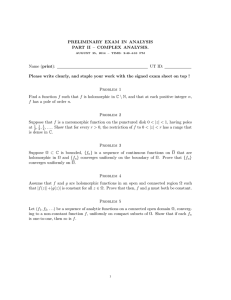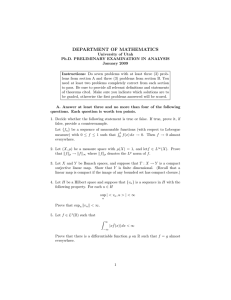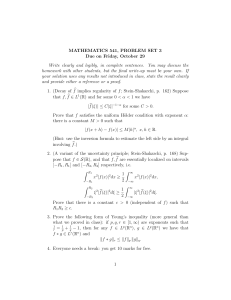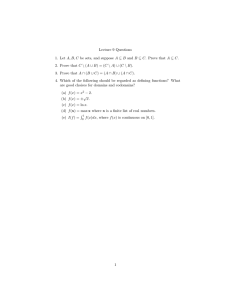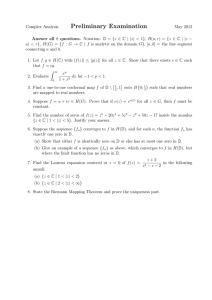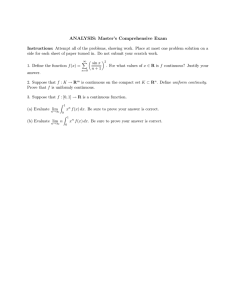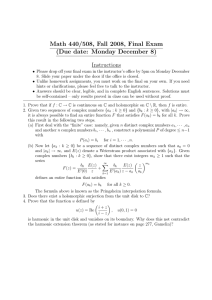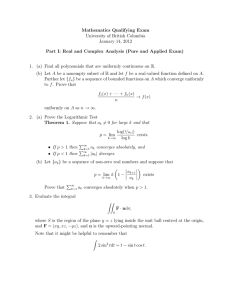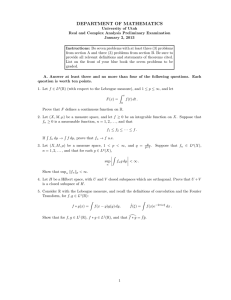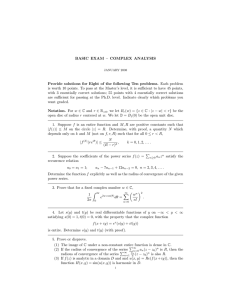Ph.D. Comprehensive Exam Complex Analysis August 27, 2001
advertisement
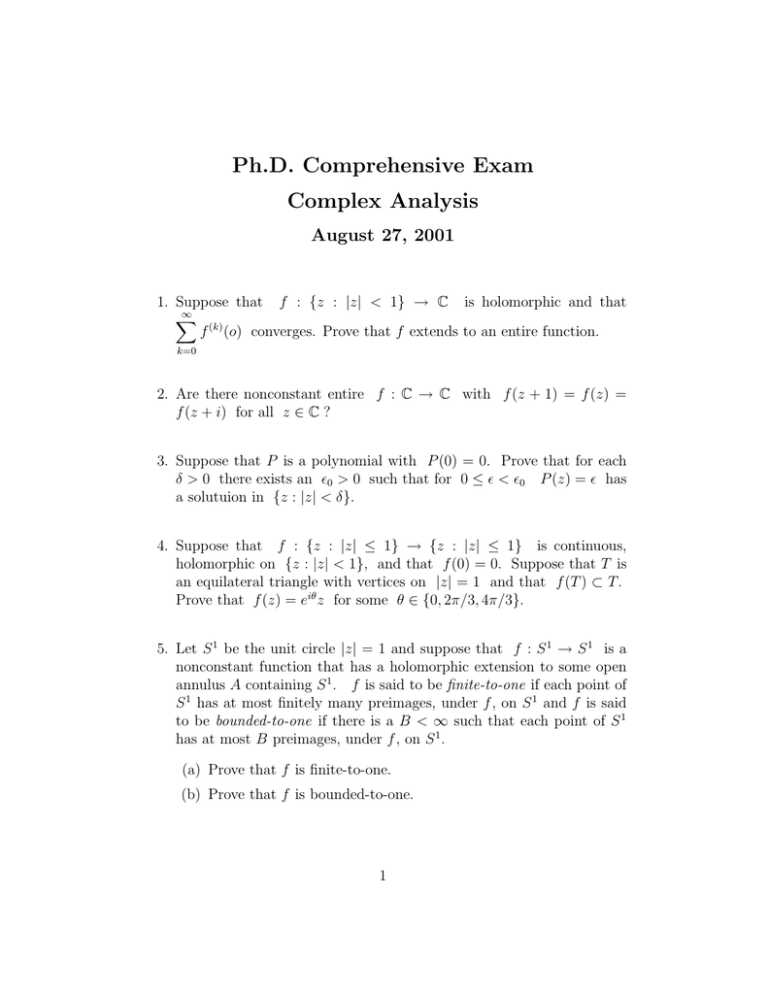
Ph.D. Comprehensive Exam
Complex Analysis
August 27, 2001
1. Suppose that f : {z : |z| < 1} → C is holomorphic and that
∞
X
f (k) (o) converges. Prove that f extends to an entire function.
k=0
2. Are there nonconstant entire f : C → C with f (z + 1) = f (z) =
f (z + i) for all z ∈ C ?
3. Suppose that P is a polynomial with P (0) = 0. Prove that for each
δ > 0 there exists an 0 > 0 such that for 0 ≤ < 0 P (z) = has
a solutuion in {z : |z| < δ}.
4. Suppose that f : {z : |z| ≤ 1} → {z : |z| ≤ 1} is continuous,
holomorphic on {z : |z| < 1}, and that f (0) = 0. Suppose that T is
an equilateral triangle with vertices on |z| = 1 and that f (T ) ⊂ T.
Prove that f (z) = eiθ z for some θ ∈ {0, 2π/3, 4π/3}.
5. Let S 1 be the unit circle |z| = 1 and suppose that f : S 1 → S 1 is a
nonconstant function that has a holomorphic extension to some open
annulus A containing S 1 . f is said to be finite-to-one if each point of
S 1 has at most finitely many preimages, under f , on S 1 and f is said
to be bounded-to-one if there is a B < ∞ such that each point of S 1
has at most B preimages, under f , on S 1 .
(a) Prove that f is finite-to-one.
(b) Prove that f is bounded-to-one.
1
